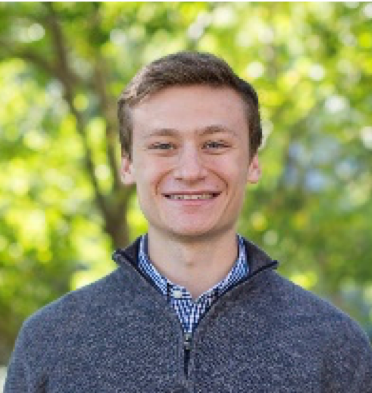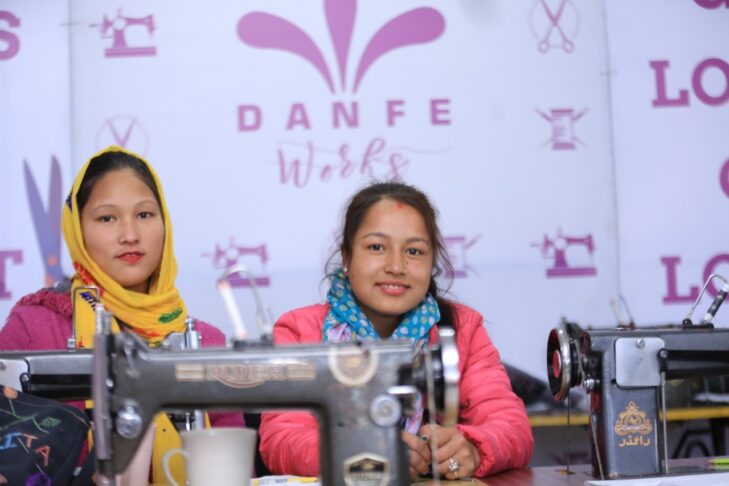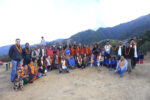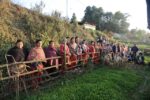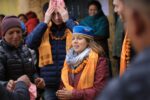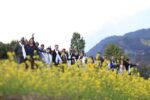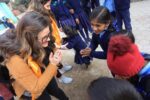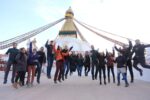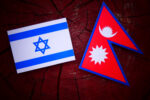Day six of Project Inspire Nepal gave our group an opportunity to hear about some very important work being done in Nepal. Our itinerary kicked off with us visiting with Antardristi at their safe house for girls who have suffered from sexual violence. Their organization has applied the practical techniques gained from the IsraAID “Building Stronger Roots” program to set up a safe house and transit homes that give young sexual violence victims the psychosocial support they need.
From there, we were able to meet with leaders from SAATH, an NGO that has two primary projects: Hakuna Matata and Danfe. Hakuna Matata is a youth program that takes young people from some of Nepal’s poorest neighborhoods and focuses on building their confidence and leadership skills to maximize their ability to achieve upward economic and social mobility. Danfe is a program that supports young women from marginalized communities through a vocational program in tailoring, support finding a job placement and additional math, English and business classes to build up their capacity to succeed economically. They also have an adjacent social enterprise they’ve built to provide a sustainable funding source for the work they do, which also doubled as an excellent place for the group to pick up some locally made gifts to bring home to Boston.
After a quick lunch break, we got to meet with the Nepal country director for SOS Children’s Village. They’ve been the beneficiary of support from IsraAID-connected specialists in psychosocial support and have used the technical assistance they’ve received to better provide for the emotional wellbeing of the children they serve. Their work in Nepal takes several forms, ranging from their alternative care model where eight to 10 children are placed in a family-like environment led by a full-time parent, to their kinship model, where children without parents are placed with a relative who is given training, financial support and regular monitoring to ensure the child is given the love and care they need. All of their models stress the belief expressed by the country director to our group: all people have a deep desire to be loved and to give love to others.
Our experiences today reminded me of a topic that has been much discussed amongst our group since getting to Nepal: the paralysis of seeing so many challenges facing a country and the inability to solve them all at once. Development reminds me of the legend of Hercules fighting the Hydra; for every victory he achieved in cutting off a head, two new ones appeared. With so many heads staring at our group on this trip, I’ve often found myself feeling a bit helpless. There are incredible people doing truly amazing, selfless work to improve the lives of the people of Nepal, but the cynic in me struggles to shake the sense that small achievements are too small, and incremental victories are distractions from the larger problems people are facing.
Yet today’s visits gave me more hope than ever that my cynical impulses are misguided. At the safe house for young sexual abuse victims, we heard that one out of every three children are abused. Antardristi’s safe houses are currently home to 34 girls, a sliver of the total population that could benefit from the work they’re doing. Yet the head of the safe house said, “At the end of the day, I’m satisfied. I can sleep well because we are helping. It might be a small number, but we know we have helped 34 kids lead a better life.”
At SAATH, they’ve given training to 129 girls through the Danfe program. That’s an impressive number but is still a drop in the bucket relative to the population in Nepal that needs the opportunity provided by skills training, job placement support and the other suite of services given to each participant. While their team acknowledged wanting to do more, they also saw the harm in rushing to bring a solution without understanding the community dynamics at play with the populations they work with. They reminded us that building enough trust to drive impact within communities where they are outsiders takes years, and real impact takes time. At the SOS Children’s Village, the scale of their work blew me away, yet they were still looking to add additional locations and programs to better serve the population of children in Nepal that are without parents.
Perfection should never be the enemy of good, and no matter how easy it is, we can’t let massive problems scare us away from finding and celebrating the small victories. One girl given the psychosocial support she needs following a trauma is a victory worth pursuing, even if it isn’t a complete solution to a systems-level challenge. In the story of Hercules and Hydra, he was only able to defeat the monster by having a partner join him in the fight. Project Inspire’s motto is “Get Inspired. Inspire Others.” If more people are able to get inspired to push for the little victories we got to celebrate today, then maybe we have a shot at delivering all of us a better world.
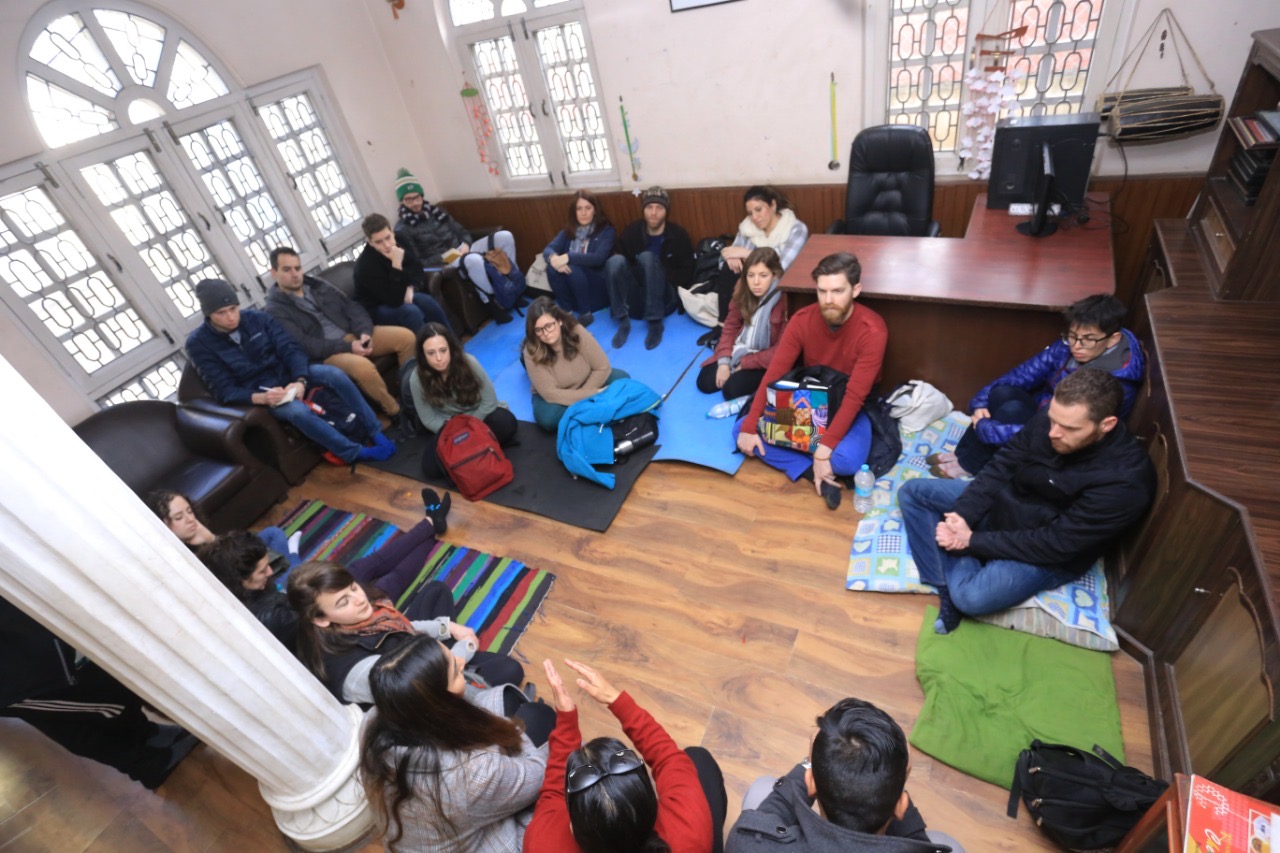
Follow along:
Blog: JewishBoston.com
Facebook: Project Inspire
Twitter: @CJPIsrael & @CJPBoston
